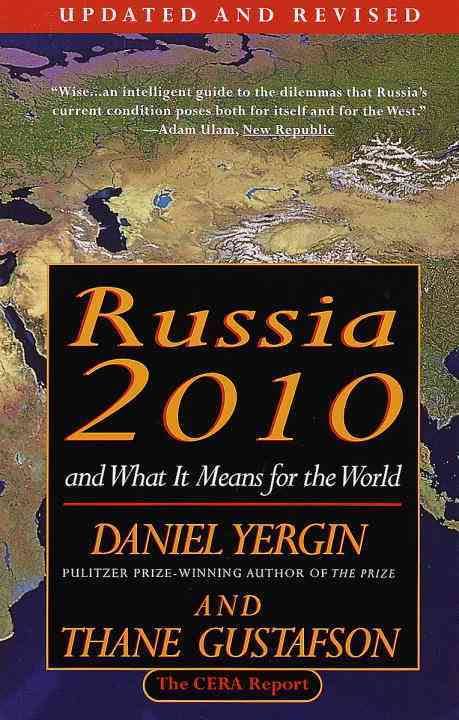Russia 2010 and what it means for the world
Daniel Yergin - Thane Gustafson
Yergin and Gustafson present a series of three conceivable roads of reform along which Russia may travel between 1994 and 2010. The first scenario, "Muddling Down," which precedes all other roads in their model, is described as "the scenario that extends the present" (pg. 140). It is characterized by a weak central government and a lack of legal infrastructure. The three roads from this point are "Two-Headed Eagle" (the return of a strong state composed of both new and old elites), "Time of Troubles" (chaos and unprecedented decentralization inevitably leading to restrictive nationalism with overtones), and "Chudo" (the economic miracle, compared with both Germany during the 1950's and with Alice in Wonderland). Regardless of the path taken, the authors believe that the outcome will be the same: by 2010 "a capitalist Russia seems almost certain" (pg. 300).
ISBN : 9781857880557 / Nicholas Brealey / 1993 / 1st editie
